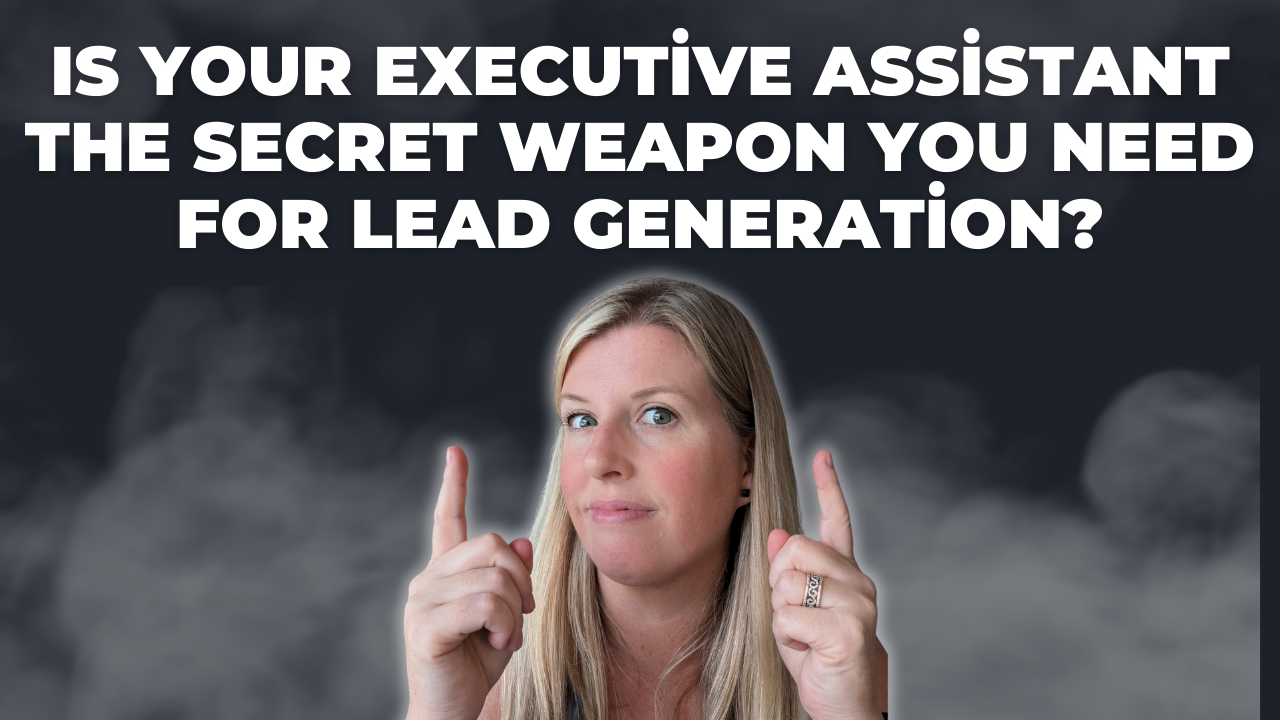Maximizing Lead Generation with Your Executive Assistant: A Guide for Business Owners
In today’s competitive business landscape, effective lead generation is crucial to driving growth. However, as a business owner, your time is best spent closing deals, not chasing leads. That’s where your executive assistant comes in. With the right training and guidance, your executive assistant can become a powerful asset in generating and qualifying leads, allowing you to focus on what you do best. In this video, we’ll explore how to onboard and train your assistant to handle various aspects of lead generation, from research to follow-ups.
And if you are considering hiring a VA, head over to workergenix.com, link on the comments, and get our FREE Delegate or Die guide. It’s a checklist of 100 tasks that you can delegate today to level up your business. Go to workergenix.com to get it now!
Now let’s dive in to how an executive assistant VA can help with lead gen!
Onboarding and Training Your Executive Assistant for Lead Generation
The first step in maximizing your executive assistant’s potential is proper onboarding and training. Start by familiarizing your assistant with your business’s target market and ideal customer profile. Understanding who your potential leads are is essential for effective lead generation.
Next, provide your assistant with the tools and resources they need to succeed. This might include access to CRM software, lead databases, and any specific guidelines you have for qualifying leads. The goal is to empower your assistant to work independently and efficiently, so clear communication and expectations are key.
Lead Research: Identifying and Qualifying Potential Leads
Lead research is the foundation of any successful lead generation strategy. Your executive assistant can be trained to identify and qualify potential leads specific to your industry, whether you’re in a service-based business or real estate investing.
Teach your assistant to use tools like LinkedIn Sales Navigator, industry-specific databases, and advanced search techniques to find leads that match your ideal customer profile. They should also be able to assess the quality of these leads, determining whether they are a good fit for your business. This process saves you time and ensures that you’re only pursuing the most promising prospects.
Email Outreach: Crafting and Managing Campaigns
Cold email campaigns can be a highly effective way to reach potential clients, but they require careful management. Your executive assistant can take charge of creating and managing these campaigns, ensuring that your messages resonate with the right audience.
Start by training your assistant to draft personalized email templates that speak directly to the pain points of your target market. They should also manage your email list, segmenting it based on factors like industry, company size, and lead quality. By automating follow-ups and tracking responses, your assistant can keep your email outreach organized and effective.
Social Media Prospecting: Engaging with Leads Online
Social media platforms like Facebook, LinkedIn, and Instagram offer a wealth of opportunities for lead generation. Your executive assistant can play a crucial role in prospecting on these platforms, helping you connect with potential clients where they are most active.
Teach your assistant to use social media tools to identify and engage with leads. This could involve joining industry-related groups, participating in discussions, and reaching out to potential clients through direct messages. The key is to build relationships and establish your business as a trusted authority in your field.
Database Management: Keeping Your Leads Organized
An organized lead database is essential for effective follow-ups and conversions. Your executive assistant can manage your CRM system, ensuring that all lead information is up-to-date and easily accessible.
This includes entering new leads into the database, updating contact information, and tracking interactions. By keeping your database well-organized, your assistant ensures that no lead falls through the cracks, allowing you to follow up at the right time with the right message.
Follow-Up Strategies: Nurturing Leads Through the Sales Funnel
Follow-ups are where many businesses lose potential clients, but with the right strategy, they can be a powerful tool for conversion. Your executive assistant can implement effective follow-up sequences, keeping leads engaged as they move through the sales funnel.
Train your assistant to schedule follow-up emails, calls, or meetings at regular intervals, tailored to the specific needs of each lead. They should also track the progress of each lead, adjusting the follow-up strategy as needed to keep the conversation moving forward. This consistent communication helps build trust and keeps your business top-of-mind for potential clients.
Sales Call Preparation: Ensuring Successful Meetings
Finally, preparing for sales calls and meetings is a critical aspect of lead generation. Your executive assistant can handle the research and scheduling for these meetings, ensuring that you are fully prepared to close the deal.
This involves gathering relevant information about the lead, including their needs, pain points, and previous interactions with your business. Your assistant can also prepare talking points, questions, and any necessary materials, so you can focus on delivering a compelling pitch.
Conclusion
By effectively training your executive assistant to manage lead generation, you can significantly boost your business’s growth potential. From lead research and email outreach to social media prospecting and sales call preparation, your assistant can handle the heavy lifting, allowing you to focus on closing deals and expanding your business. If you’re ready to take your lead generation efforts to the next level, consider how a skilled executive assistant can make all the difference.

